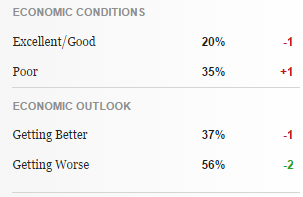 From the Editors:
From the Editors:
Today Scotland votes on a referendum concerning political independence from the United Kingdom.
For libertarians, the politics surrounding both sides of the vote are suspicious. The globalist banking class, ever fearful of decentralization of power, warns that Scotland needs Westminster’s economic assistance (read: welfare), Westminster’s military might, and Westminster’s currency. The largely socialist Scots, meanwhile, argue for a more ‘egalitarian’ society administered by Holyrood and a new alliance with their more enlightened fellow travelers in Brussels – leaving one master for another.
As always, libertarians should focus on first principles. Murray Rothbard’s 1993 essay,’Nations by Consent: Decomposing the Nation-State,’ does just that.
Rothbard asks the correct questions: What is a nation? What makes a nation legitimate? Are nation-states needed for collective security? When is secession allowed? Should open borders and open immigration be allowed? How should citizenship and voting rights be conferred? How would a completely private, anarcho-capitalist country operate?
These are the questions we must ask and answer as we argue against the state, against central banks, and against an increasingly global crony political class.
Nations By Consent: Decomposing the Nation-Sate
Libertarians tend to focus on two important units of analysis: the individual and the state. And yet, one of the most dramatic and significant events of our time has been the re-emergence – with a bang – in the last five years of a third and much-neglected aspect of the real world, the ‘nation.’ When the ‘nation’ has been thought of at all, it usually comes attached to the state, as in the common word, ‘the nation-state,’ but this concept takes a particular development of recent centuries and elaborates it into a universal maxim. In the last five years, however, we have seen, as a corollary of the collapse of communism in the Soviet Union and in Eastern Europe, a vivid and startlingly swift decomposition of the centralized State or alleged nation-State into its constituent nationalities. The genuine nation, or nationality, has made a dramatic reappearance on the world stage.
This post was published at Ludwig von Mises Institute on September 18, 2014.

















Recent Comments